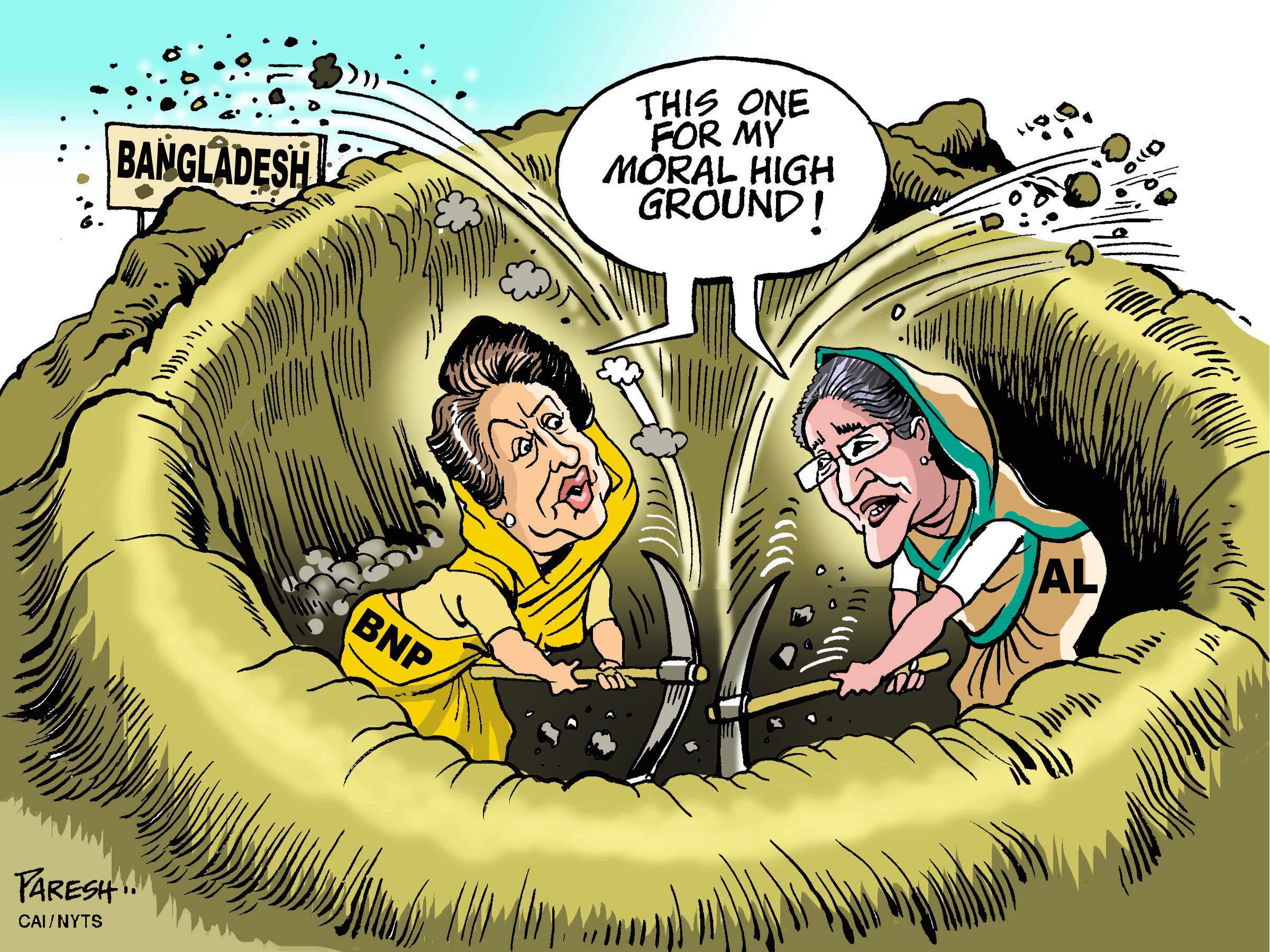These are times of trial — literally in the courts — for a growing number of Asia's democracies. The list of major national political leaders in the region who have faced, or are about to face, criminal charges has grown so extensive that it is plausible to wonder whether democracy itself can survive in a number of these countries.
Perhaps the gravest allegations have been leveled at Bangladesh's opposition leader Khaleda Zia, who has been charged with murder in a case going back many years. India's former prime minister, Manmohan Singh, who lost power less than a year ago, is being questioned by prosecutors in connection with allegations of corruption in the privatization of coal mines under his government. Following a military coup that overthrew her democratically elected government, Thailand's former prime minister, Yingluck Shinawatra, is facing charges of official malfeasance over rice subsidies.
Then there is the long-running saga of Malaysia's opposition leader and former Deputy Prime Minister Anwar Ibrahim. His conviction on sodomy charges will effectively ban him from politics for five years, at a moment when the opposition is posing the most serious challenge to Malaysia's ruling United Malays National Organization (UMNO) since the country gained its independence from the British Empire in 1958. Moreover, Anwar's daughter has now been detained for questioning the integrity of her father's trial in a speech in the Malay parliament, in which she is an elected member in her own right.



















With your current subscription plan you can comment on stories. However, before writing your first comment, please create a display name in the Profile section of your subscriber account page.